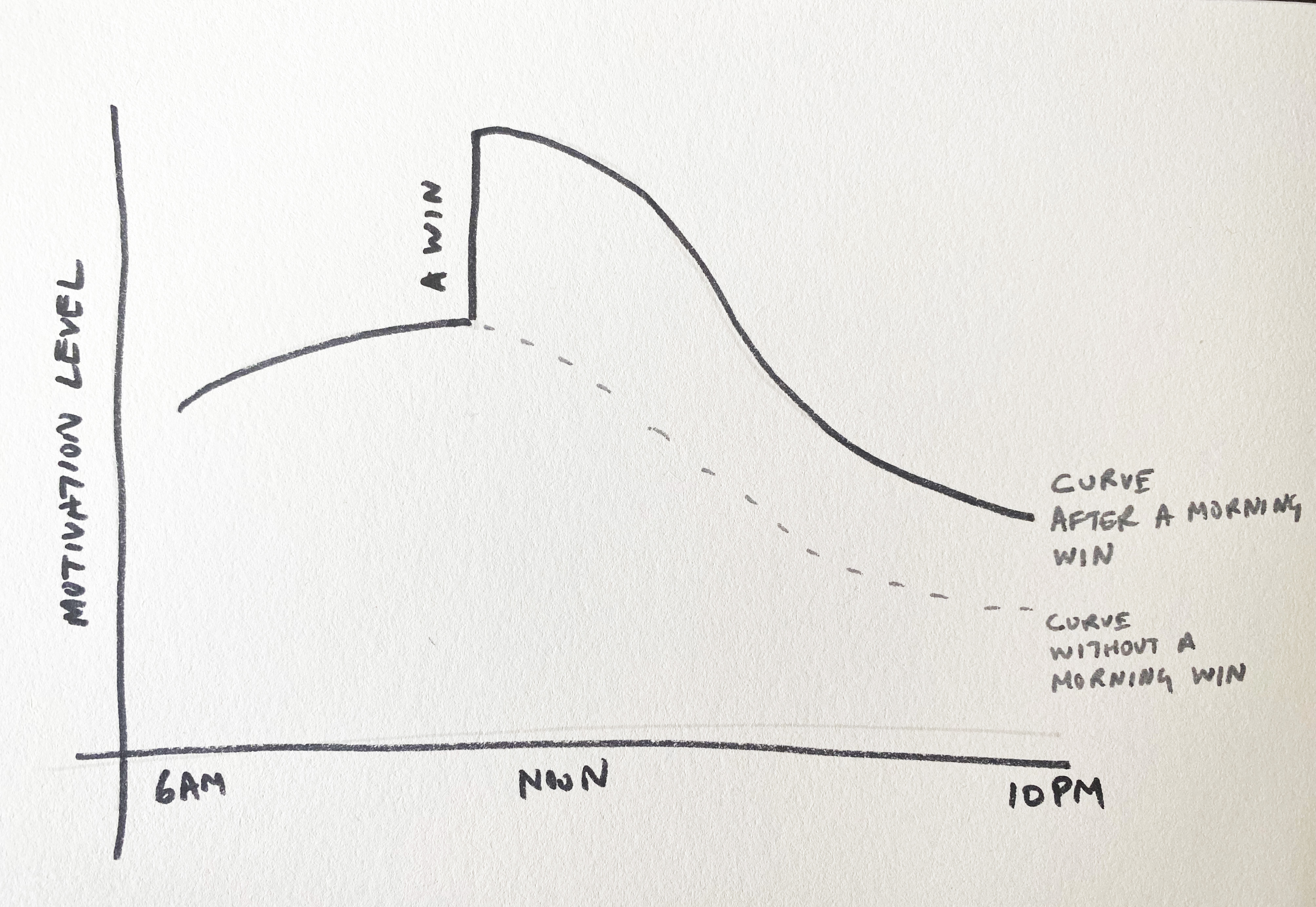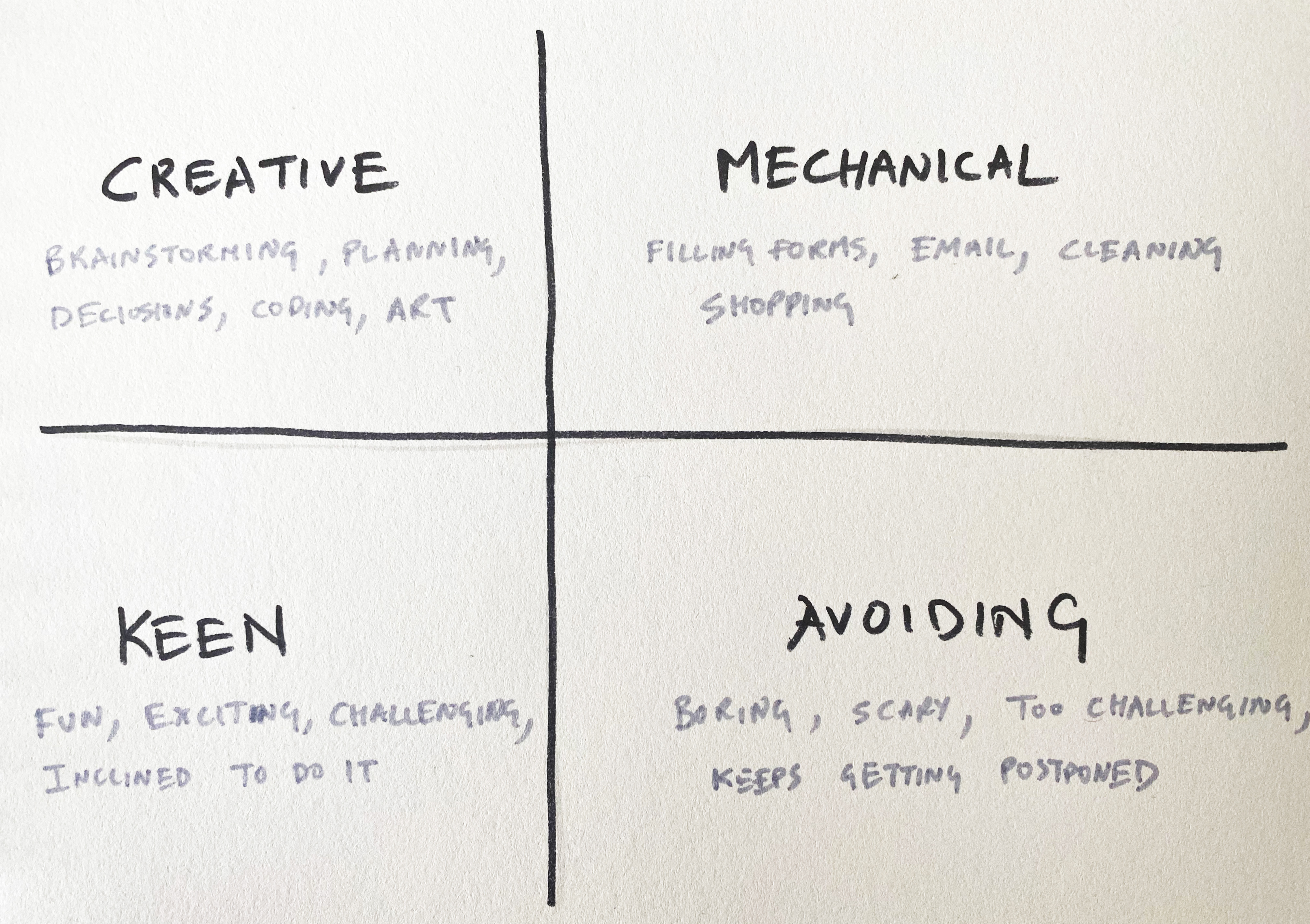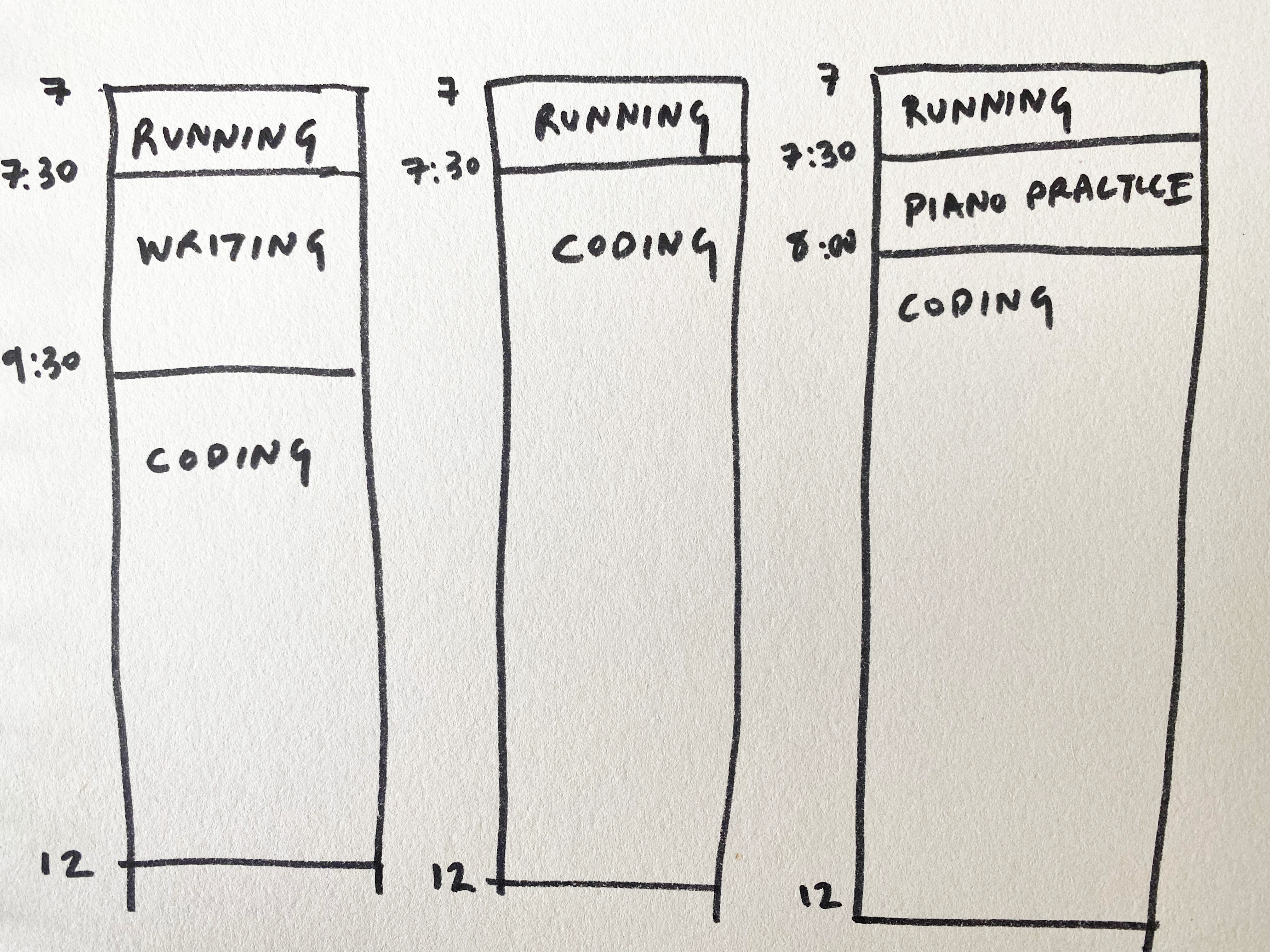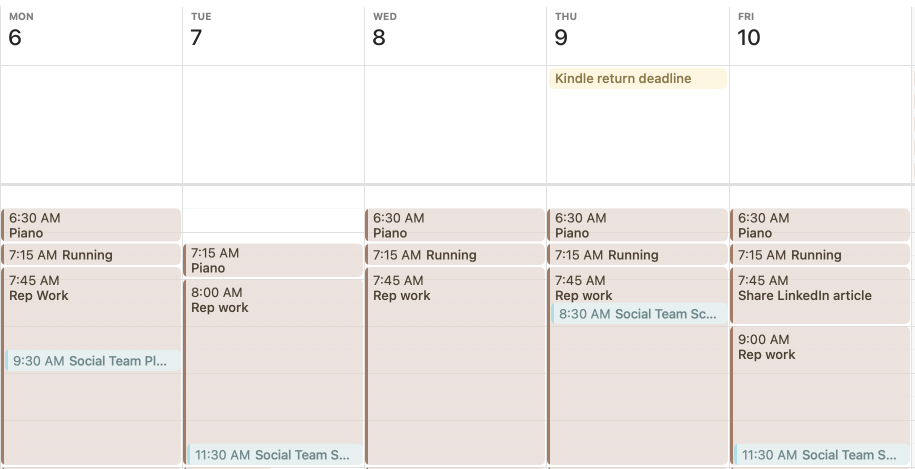Which Frog Will You Eat?
Most people start their workday without thinking about how to structure the day. The morning hours, in particular, are crucial. Even a slight switch in what you do in the morning and afternoon can make a massive difference. Your life will change when you design your mornings to do the right things. (By morning, I mean the first few hours after you wake up, no matter when that is.)
Productivity gurus will tell you to eat a frog in the morning. I don’t know how they taste, but it must be difficult. Hence the saying eat the frog–start your day with the most difficult thing.
There are two reasons why you should reserve your mornings for difficult tasks. You’re fresh, energetic, motivated, and have maximum clarity, so it’s your best chance of getting through them. But also, you’re rewarded with a high-quality dose of dopamine after completing a difficult task. An early win bumps your motivation curve. And this bump significantly changes how you progress through the afternoon slump.

However, there are different types of difficult tasks, and not all are worth your time in the morning. Filling out tax forms is difficult because it’s boring. Writing this article is difficult because it’s challenging. Having that difficult conversation with your coworker is difficult because it’s scary.
So, while you should eat a frog in the morning, the real question is, which frog will you eat?
Work Matrix
Rather than thinking of tasks as difficult or easy, I recommend using what I call a work matrix to get clarity on your tasks.

Creative work is typically the hardest type of work, and it isn’t just the artsy stuff. It’s whatever taxes your brain: brainstorming, planning, decision making, coding, and of course, most forms of art.
Mechanical work takes up your time but not your brain. These are tasks where you’re not thinking as much. You’re almost on auto-pilot mode. Tasks like washing dishes, filling out forms, checking email, or shopping. That’s not to say that mechanical work does not need your brain, but it doesn’t tax your brain as creative work does.
A task has another quality: you’re either keen on doing it (because maybe it’s fun, inspiring, or challenging), or you’re avoiding it for some reason (maybe it’s boring, scary, or overly challenging).
So, what should you work on in the morning?
Not mechanical tasks. That would be a royal waste of your morning brain. This includes most meetings. Move them to the afternoon.
Do creative tasks in the morning. These need your brain the most. Particularly the boring ones. Or the scary ones. Or the challenging ones. The tasks you tend to avoid. Morning is when you’re most likely to make progress on these. That’s why I write in the morning and edit photos in the evening. Both are creative work, and both are challenging, but editing photos is fun enough that I don’t need the morning energy for it.
Keep in mind that creative work often can't be completed in one sitting. Sometimes it takes me months to finish writing an article. But as long as you make progress, you’ll get your (high-quality) dopamine reward.
Another thing to consider for morning tasks.
The work should be important and urgent. It’s another reason why I wouldn’t use the morning to edit photos–there’s no deadline. Even writing—though I write in the mornings when I have better mental clarity, I limit my writing sessions to two hours. It’s not urgently important. Most of what I do in the morning are coding-related tasks for my day job. This work requires my brainpower, has deadlines, and is critical for my career. Finding and fixing bugs is boring (as I noted in the previous article). It's not something I'm keen on doing. But it's a creative process–I have to wear my investigative hat for it. So, bug fixing (creative + boring) is perfect for the morning. Creating new app features (creative + fun) comes after bug fixing. Ad hoc meetings, calls, emails, Slack discussions and huddles, and other non-creative work wait till the afternoon (whatever is in my control).
Here are some examples of how I organize my morning.

Here is a real screenshot from my calendar last week. (Rep work refers to Reputation work, my day job.)

(Though in a previous article I mentioned I run first thing in the morning, I made a slight change recently because I kept missing my piano practice. I used the habit stacking technique to practice piano before running.)
The Temptation
Some days you might be tempted to do mechanical tasks in the morning, perhaps to clear your head–cleaning up your inbox, for instance. And sometimes that’s OK—morning is the best time to get through mechanical tasks, too—especially things you keep postponing. Just remember that nothing clears your head more than making progress on an important, difficult, and creative project.
What if you're not a morning person?
First, all of this is subjective. The examples I’ve given here might not apply to you. What I find challenging you might find easy. What I find creative you might find mechanical. But I hope this gives you a framework to optimize your mornings with whatever work you have on your plate. Also, you might not function well in the morning like I do. You might reach your peak state a few hours after waking up. Or your peak could be at night. If that's the case, apply the framework to whatever your peak hours are-–do creative work (especially the ones you tend to avoid) during your peak hours. Night owls could miss out on the early win opportunity. But as Matthew Walker says in Why We Sleep, though morning larks have a slight advantage over night owls, the advantage isn't biological. It's because of how our society is structured.
Some coworkers don't agree.
After reading a draft of this article, some coworkers said they work the opposite way. One of them, a product manager, said she likes replying to easy emails in the morning because the quick win propels her for more challenging work later, like writing requirements for large projects. It's an important point. While mornings are great for complex tasks, starting with a quick and easy win amps you up before you get to the hard things. We're going to zoom into this in another article, but if you look at my calendar above, it's another reason why I practice piano before starting my coding tasks. It gives me that quick win.
Another coworker said her family needs her in the morning, and it's only in the afternoon that she gets undivided time to focus on the difficult tasks. It's another important point–everybody's circumstances are different. I tend to share specific formulas that have worked for me (the web is full of generic productivity advice anyway), but your mileage may vary. Your lifestyle might be different. Your brain might operate differently. Your implementation might differ, but the principles are the same. The important thing is that you're thinking about how to structure your day rather than going about it randomly.
One coworker had a complaint.
Swami, I've been thinking about mechanical and creative tasks since reading your article and you're now responsible for tons of unread emails in my inbox!